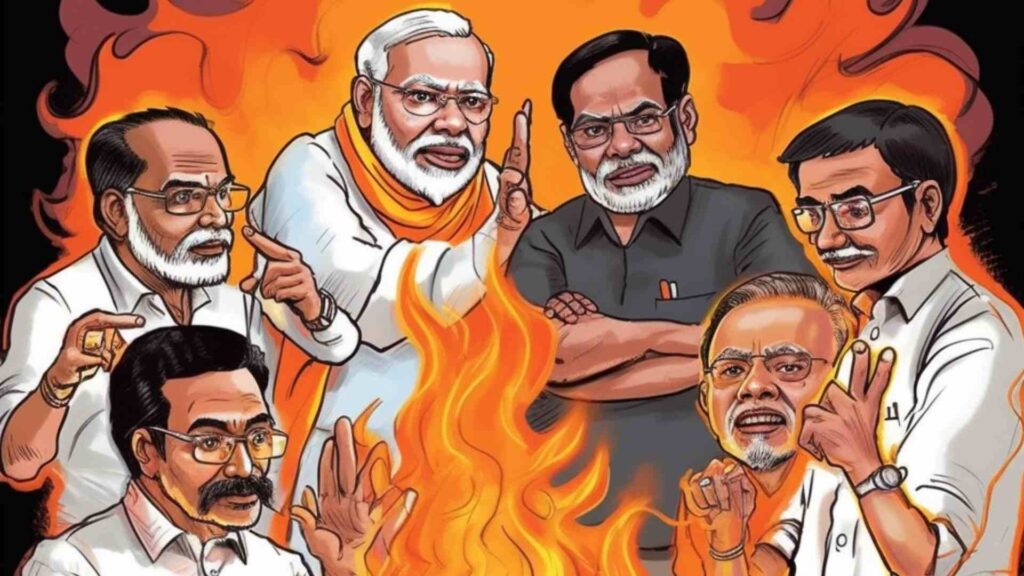Maharashtra: In a significant development, Saamana, the official publication of the Shiv Sena (UBT) party has reported that a group of prominent leaders which includes 22 MLAs and 9 Lok Sabha MPs led by Chief Minister Eknath Shinde, are expressing their desire to distance themselves from the Bharatiya Janata Party (BJP).
The discontentment has arisen from a perceived lack of development in their respective constituencies. This growing discontentment can have far-reaching implications for the ruling alliance in Maharashtra.
According to Shiv Sena MP Vinayak Raut, these legislators have been in contact with the party, expressing their frustration and seeking an exit from the Shinde-led party. The primary reason behind their dissatisfaction is the lack of progress witnessed in their constituencies, leading them to explore other political avenues.
One of the prominent voices of dissent is Gajanan Kirtikar, a senior leader within the Shiv Sena known for his spirited slogans in support of the party. Kirtikar has openly voiced his discontentment with the BJP, alleging discrimination and a lack of attention to the issues concerning their constituencies.
As part of the National Democratic Alliance (NDA), which includes the Shiv Sena, Kirtikar expected priority resolution of the problems faced by their constituents but expressed disappointment over the lack of progress.
Furthermore, Saamana’s editorial highlighted that the dissatisfied group aspires to contest 22 Lok Sabha seats within the state, indicating their intention to seek support from the BJP.
However, the publication claimed that the BJP is reluctant to provide even five to seven seats to this group, signaling potential tensions and a strain within the alliance.
The discontent among Shiv Sena party members comes as a blow to the BJP-Shiv Sena alliance, which has been governing Maharashtra since the previous assembly elections.

Past year, a group of 40 MLAs had revolted against then-Chief Minister Uddhav Thackeray, joining hands with the BJP. At the time, these leaders expressed their frustration over the lack of progress in their constituencies due to the dominance of key portfolios by leaders from the Congress and Nationalist Congress Party (NCP).
The revolt eventually led to Uddhav Thackeray’s resignation as chief minister, allowing the BJP and the Shinde-led Shiv Sena to form an alliance.
However, the recent claims made by Saamana suggest that many leaders within the Shinde faction are now disillusioned with the BJP and seek a change in their political affiliation.
The discontentment among the Shiv Sena leaders, if not addressed promptly, can have significant ramifications for the BJP. With 105 seats in the current assembly, the BJP holds a majority, while the Shinde-led Shiv Sena has 40 MLAs.
In the previous Lok Sabha election, the BJP contested 25 seats, while the combined Shiv Sena won 23 seats. However, it is now speculated that Uddhav Thackeray’s Shiv Sena may consider forming an alliance with the Congress and NCP for the upcoming general elections.
The Bhartiya Janta Party will need to address the concerns raised by the dissatisfied leaders, focusing on the developmental needs of their constituencies to retain their support. Failure to address these issues, may lead to a potential shift in the political landscape of Maharashtra.
As the situation unfolds, it remains to be seen how the BJP responds to the claims made by Saamana and whether it can effectively resolve the grievances of the dissatisfied Shiv Sena leaders. The outcome of this internal power struggle will undoubtedly shape the future course of the BJP-Shiv Sena alliance.


